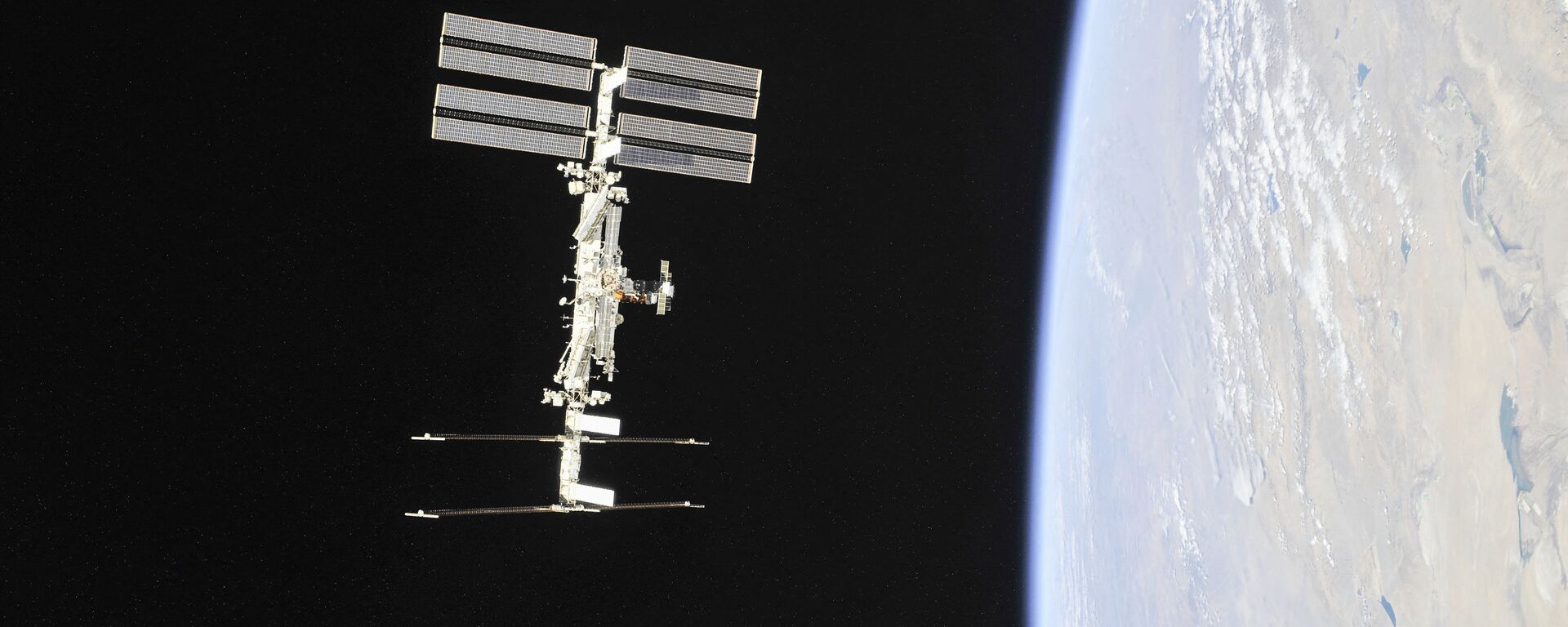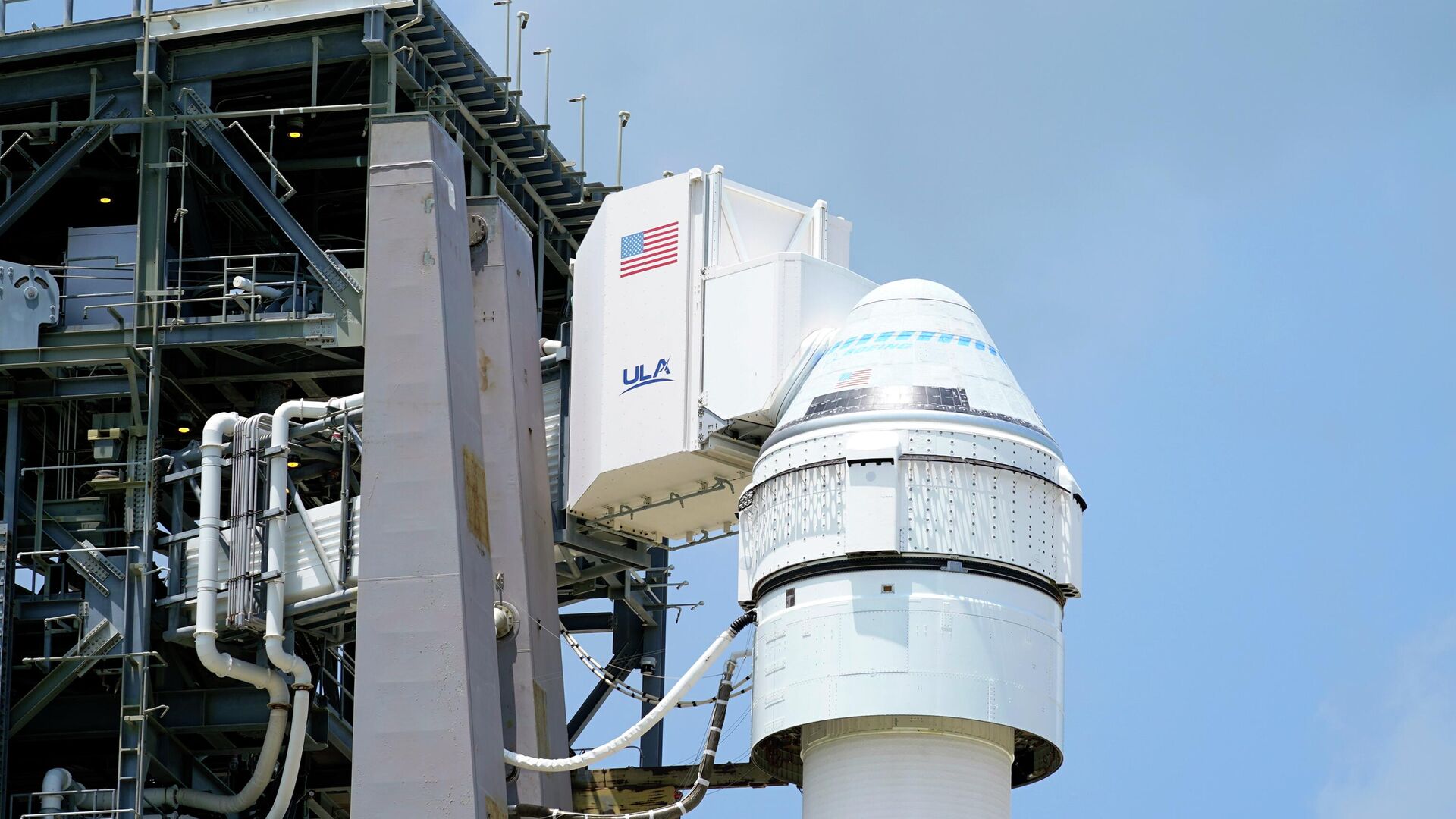https://sputnikglobe.com/20220513/clash-of-the-titans-boeing-reportedly-butting-heads-with-supplier-over-starliner-issues-1095472901.html
Clash of the Titans: Boeing Reportedly Butting Heads With Supplier Over Starliner Issues
Clash of the Titans: Boeing Reportedly Butting Heads With Supplier Over Starliner Issues
Sputnik International
Boeing's new CST-100 Starliner is set to fly to the ISS on May 19 atop an Atlas 5 rocket from Florida, with the company hoping to demonstrate to NASA that the... 13.05.2022, Sputnik International
2022-05-13T00:17+0000
2022-05-13T00:17+0000
2023-04-12T16:57+0000
business
spacecraft
starliner
boeing
space
https://cdn1.img.sputnikglobe.com/img/07e6/05/0c/1095474992_0:74:3072:1802_1920x0_80_0_0_f103d4d1e93b16c6909d1ba082ff4a12.jpg
Boeing and its supplier, Aerojet Rocketdyne, are blaming each other for a major new issue with the Starliner spacecraft's fuel valve, as the problems with the project persist, Reuters reported on Thursday. According to previous media reports, the development comes only a week after a portion seemed to fall off a Starliner while it was being brought to the launchpad for uncrewed tests.Reuters reported, citing its sources, that Boeing and Aerojet are at war over the cause of the fuel valve problem in the Starliner propulsion system that prompted a test flight postponement last July, with the two companies continuing to blame each other. The aerospace giant reportedly told the outlet in a statement that it planned to alter the Starliner's valve system to avoid a repeat of the issue that necessitated the test flight postponement last year. Last year's postponement was due to the discovery of thirteen fuel valves becoming stuck and unresponsive in the closed position. The valves are part of a propulsion system that helps steer Starliner in space.Numerous technical problems are pushing Starliner's first manned flight into the distance, putting it well behind billionaire entrepreneur Elon Musk's SpaceX, whose Crew Dragon capsule - constructed under the same NASA program as Starliner, has already flown five astronaut crews for the US space agency. NASA is hoping that Boeing will ultimately be able to provide alternative options for transporting humans to the ISS.In the meantime, NASA awarded SpaceX three more missions in March to compensate for Boeing's delays. The source of the jammed valves, according to the report, citing Boeing and NASA engineers, is a chemical reaction involving propellant, aluminum alloys, and moisture ingress from Starliner's humid Florida launch location.The outlet's sources claimed that Aerojet experts and lawyers blame a cleaning chemical used in ground tests by Boeing. This claim has reportedly been dismissed by the corporation as an attempt to divert blame for the costly spacecraft delay and avoid paying for a rebuilt valve system.In addition, Aerojet also reportedly failed to meet Boeing's contractual requirements for making the propulsion system durable enough to withstand the issues caused by chemical reactions. Boeing returned Starliner to the launchpad for the third time last week, having replaced the propulsion system with a temporary patch that stops moisture from seeping into the valve section ahead of the impending launch.The disagreement comes as Boeing struggles to recover from a series of problems that have hampered its airplane business and depleted its funds. The upcoming mission is believed to be a critical step toward re-establishing Boeing as a viable competitor to Musk's SpaceX.The Aerojet issue is the latest example of Boeing's troubles with the Starliner program, which has cost the corporation $595 million since 2019. The company is reportedly faced with fixed-price NASA contracts that have left it with little financial flexibility.
https://sputnikglobe.com/20220210/nasa-warns-spacex-plan-for-30000-satellites-could-put-space-station-at-risk---reports-1092897796.html
Sputnik International
feedback@sputniknews.com
+74956456601
MIA „Rosiya Segodnya“
2022
News
en_EN
Sputnik International
feedback@sputniknews.com
+74956456601
MIA „Rosiya Segodnya“
Sputnik International
feedback@sputniknews.com
+74956456601
MIA „Rosiya Segodnya“
business, spacecraft, starliner, boeing, space
business, spacecraft, starliner, boeing, space
Clash of the Titans: Boeing Reportedly Butting Heads With Supplier Over Starliner Issues
00:17 GMT 13.05.2022 (Updated: 16:57 GMT 12.04.2023) Kirill Kurevlev
Managing Editor
Boeing's new CST-100 Starliner is set to fly to the ISS on May 19 atop an Atlas 5 rocket from Florida, with the company hoping to demonstrate to NASA that the spacecraft is safe to transport astronauts to and from the orbiting outpost. Previous uncrewed tests were postponed multiple times due to various issues.
Boeing and its supplier, Aerojet Rocketdyne, are blaming each other for a major new issue with the Starliner spacecraft's fuel valve, as the problems with the project persist, Reuters
reported on Thursday.
According to previous
media reports, the development comes only a week after a portion seemed to fall off a Starliner while it was being brought to the launchpad for uncrewed tests.
Reuters reported, citing its sources, that Boeing and Aerojet are at war over the cause of the fuel valve problem in the Starliner propulsion system that prompted a
test flight postponement last July, with the two companies continuing to blame each other.
The aerospace giant reportedly told the outlet in a statement that it planned to alter the Starliner's valve system to avoid a repeat of the issue that necessitated the test flight postponement last year.
"We are working on short- and long-term design changes to the valves," a statement said, adding that "testing to determine root cause of the valve issue is complete."
Last year's postponement was due to the discovery of thirteen fuel valves becoming stuck and unresponsive in the closed position. The valves are part of a propulsion system that helps steer Starliner in space.
Numerous technical problems are pushing Starliner's first manned flight into the distance, putting it well behind billionaire entrepreneur Elon Musk's SpaceX, whose Crew Dragon capsule - constructed under the same NASA program as Starliner, has already flown five astronaut crews for the US space agency. NASA is hoping that Boeing will ultimately
be able to provide alternative options for transporting humans to the ISS.
In the meantime, NASA awarded SpaceX three more missions in March to compensate for Boeing's delays. The source of the jammed valves, according to the report, citing Boeing and NASA engineers, is a chemical reaction involving propellant, aluminum alloys, and moisture ingress from Starliner's humid Florida launch location.
The outlet's sources claimed that Aerojet experts and lawyers blame a cleaning chemical used in ground tests by Boeing. This claim has reportedly been dismissed by the corporation as an attempt to divert blame for the costly spacecraft delay and avoid paying for a rebuilt valve system.
In addition, Aerojet also reportedly failed to meet Boeing's contractual requirements for making the propulsion system durable enough to withstand the issues caused by chemical reactions. Boeing returned Starliner to the launchpad for the third time last week, having replaced the propulsion system with a temporary patch that stops moisture from seeping into the valve section ahead of the impending launch.
The disagreement comes as Boeing struggles to recover from a series of problems that have hampered its airplane business and depleted its funds. The upcoming mission is believed to be a critical step toward re-establishing Boeing as a viable competitor to Musk's SpaceX.

10 February 2022, 03:20 GMT
The Aerojet issue is the latest example of Boeing's troubles with the Starliner program, which has cost the corporation $595 million since 2019. The company is reportedly faced with fixed-price NASA contracts that have left it with little financial flexibility.




